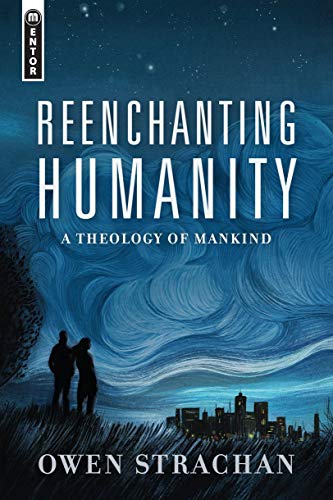A Brief Book Summary from Books At a Glance
By Benjamin J. Montoya
About the Author
Owen Strachan is Associate Professor of Christian Theology at Midwestern Baptist Theological Seminary in Kansas City, Missouri. He is the Director of the Center for Public Theology at MBTS.
Introduction
Our current culture is seeking to return to paganism as it transitions to neo-paganism. There are countless causalities in this transition, not the least of which is people’s view of themselves. What happens when people reject the biblical doctrine of mankind for a neo-pagan view is the disenchantment of what the Bible teaches about us. In this important book, Strachan seeks to reenchant our view of mankind by returning to what the Bible says. This book is well worth your consideration!
Table of Contents
Chapter 1 Image
Chapter 2 Depravity
Chapter 3 Work
Chapter 4 Sexuality
Chapter 5 Race and Ethnicity
Chapter 6 Technology
Chapter 7 Justice
Chapter 8 Contingency
Chapter 9 Christ
Chapter 1: Image
Our culture long ago sounded the alarm that, “God is dead.” Philosophers who took such a view had a deep and lasting impact on our culture as we know it. But that was not the only thing they intended to impact. They also wanted to change our view of ourselves. Think carefully about the connection: if we do not have a Creator, as the Bible teaches, then we are not made in his image. Then we become something else altogether. That is what neo-paganism teaches. That is what humanism has focused on. But that is not what the Bible teaches us.
The Bible teaches us that the God of the Bible is our Creator. He made as creatures with souls that he created. He made us in his image. Theologians have debated what it means for man to be made in the image of God. The result has been that there are several positions of how to understand this one biblical concept. Strachan takes a position that synthesizes the ontological and functional views of man, such that both are taken to be true.
The Bible teaches that the larger purpose of our lives is to worship God, not seek to serve ourselves through some kind of self-discovery. We can discover our true selves by looking at what God commands of us. That is the greater purpose for which we all exist. Jonathan Edwards picked up on this point in his preaching and writings.
Chapter 2: Depravity
What is wrong with humanity? Although we may have a variety of answers to that question, most people will agree there is something wrong, such that people do unspeakable things. Even people who seek to abandon categories of “good” and “evil” still insist that we need to improve. In our modern day, that improvement is usually sought technologically, thinking that we can fix our problems ourselves. Is that so?
The Bible teaches that our ultimate problem stems from our depravity. When Adam and Eve sinned against God in the garden of Eden, they ruined us in ways that the Bible speaks about all throughout. Their act was an ultimate rejection of God in an effort to seek God’s greatness for themselves. The Fall is really a breakdown of the created order with man deciding for himself what he wants to do instead of listening to God. The result of our sin is our spiritual and physical death. The day of the Fall resulted in a fourfold death for Adam: judicial, spiritual, eventual physical death, and eternal death. We, too, experience death because of Adam’s sin and our own.
[To continue reading this summary, please see below....]The remainder of this article is premium content. Become a member to continue reading.
Already have an account? Sign In
